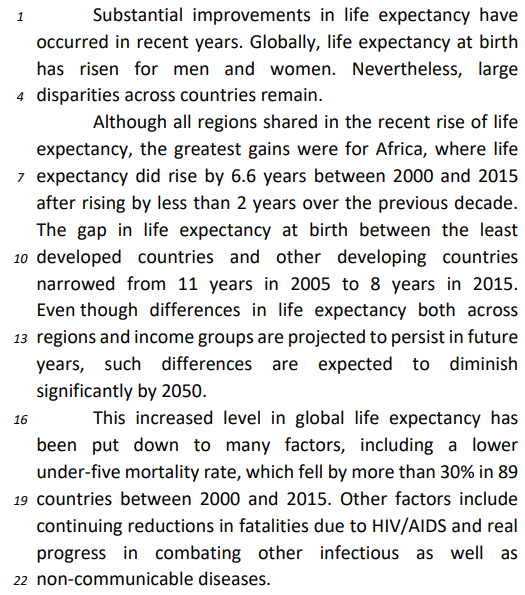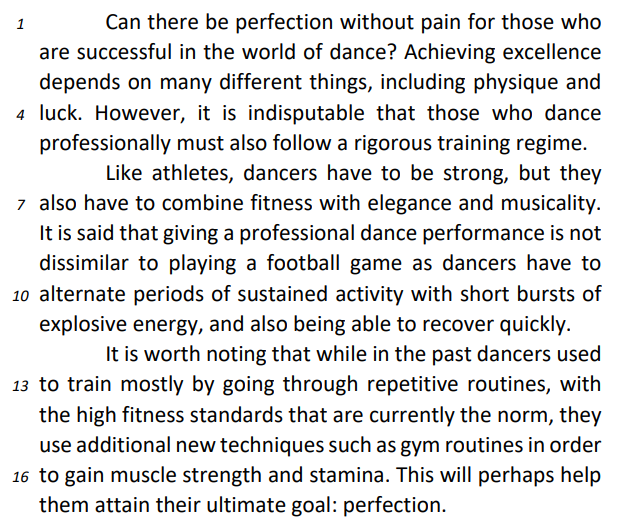Questões de Concurso
Comentadas sobre aspectos linguísticos | linguistic aspects em inglês
Foram encontradas 616 questões
Text 1:
How being bilingual can boost your career
Whether you’re fresh out of college or a seasoned executive, insiders agree that fluency in a second language can not only help you stand out among prospective employers, it can also open doors to opportunities that those without foreign language skills might miss.
In today’s global economy, the ability to communicate in another language has become a significant advantage in the workforce. Research has found that people who speak at least one foreign language have an average annual household income that’s $10,000 higher than the household income of those who only speak English. And about 17 percent of those who speak at least one foreign language earn more than $100,000 a year.
A recent survey found that nearly 9 out of 10 headhunters in Europe, Latin America, and Asia say that being at least bilingual is critical for success in today’s business environment. And 66 percent of North American recruiters agreed that being bilingual will be increasingly important in the next 10 years.
“In today’s global economy you really have to understand the way business is done overseas to maximize your potential. A second language equips you for that,” says Alister Wellesley, managing partner of a Connecticut-based recruiting firm. “If you’re doing business overseas, or with someone from overseas, you obtain a certain degree of respect if you’re able to talk in their native language.”
Language skills can also be key for service industries. At the Willard InterContinental Washington, a luxury hotel a few blocks from the White House, a staff of about 570 represents 42 nations, speaking 19 languages. The Willard’s front-of-house employees such as the concierge speak at least two languages. Bilingualism is not an absolute requirement, but it is desirable, according to Wendi Colby, director of human resources.
Workers with skills in a second language may have an edge when it comes to climbing Willard’s professional ladder. “The individual that spoke more languages would have a better chance for a managerial role, whatever the next level would be,” Colby says. “They are able to deal with a wide array of clients, employees.”
So which languages can give you a leg up on the job market? Insiders agree the most popular – and marketable – languages are Spanish, German, French, Italian, Russian and Japanese, with a growing emphasis on Mandarin, given China’s booming economy. So let’s learn Mandarin!
“We see demand from a full range of industries,” says Wellesley. “Actually it depends on which company you’re working for and the country in which they’re located.”
Adapted from: LATHAM-KOENIG, Christina & OXENDEN,
Clive. American English File 5. 2nd edition. Oxford: OUP,
2018.
Which figure of speech is represented on the sentence:
"I think our country sinks beneath the yoke;
It weeps, it bleeds. IV. iii 39-40. (Macbeth, Shakespeare)
Towards a fairer distribution

Towards a fairer distribution. Available at: <www.economist.com>.
Retrieved on: Aug. 15. 2019, with adaptations.
The word “former” (line 5) refers to someone who created the Treaty.

Nicolson, H. (1963) (3rd edition) Diplomacy.
Oxford: OUP, with adaptations.
In the fragment “Thus, whereas the man in the street” (line 43), the underlined adverb means “as a result of what has just been said or stated” and can be replaced with hence.

Nicolson, H. (1963) (3rd edition) Diplomacy.
Oxford: OUP, with adaptations.
In the fragment “to its achievement” (line 17), the underlined pronoun refers to “religious intensity” (line 16).
“When Louise had gone to her own room, I washed, changed into a white frock with a wide blue belt, and did my face and hair very slowly.”
In the sentence above, we can find many modifiers. Mark the alternative that does NOT represent a modifier in this context.
Leia as afirmativas a seguir:
I. Está correta a grafia do trecho a seguir, em inglês: it is like enough (é muito provável).
II. Está correta a grafia do trecho a seguir, em inglês: to take leave (despedir-se, partir).
Marque a alternativa CORRETA:
Leia as afirmativas a seguir:
I. Estão corretas a grafia e a tradução do seguinte trecho, em inglês: make it known (torne público).
II. Estão corretas a grafia e a tradução do seguinte trecho, em inglês: to keep silence (ficar calado).
Marque a alternativa CORRETA:
Leia as afirmativas a seguir:
I. Está correta a grafia do trecho a seguir, em inglês: by your leave (com sua licença).
II. Está correta a grafia do trecho a seguir: he brougiht down the house.
Marque a alternativa CORRETA:
Leia as afirmativas a seguir:
I. Está correta a grafia do trecho a seguir: he made a clean breast of it.
II. Está correta a grafia do trecho a seguir, em inglês: do not shout like that (não grite tanto).
Marque a alternativa CORRETA:
Leia as afirmativas a seguir:
I. Na frase “he eats him out of house and home”, o verbo 'eats' pode ser melhor traduzido como reformar.
II. O trecho a seguir, em inglês, está corretamente grafado: to have im kypimg (guardar, custodiar).
Marque a alternativa CORRETA:
Leia as afirmativas a seguir:
I. Estão corretas a grafia e a tradução do seguinte trecho, em inglês: to take leave (despedir-se, partir).
II. Estão corretas a grafia e a tradução do seguinte trecho, em inglês: to keep smiling (não desanimar, sorrir sempre).
Marque a alternativa CORRETA:
Leia as afirmativas a seguir:
I. Está correta a grafia do trecho a seguir: I bought hin of.
II. No trecho "to be crawling with" ocorre um verbo cujo significado é "gerenciar" ou "comandar".
Marque a alternativa CORRETA:
Text for the item.
A long and healthy life?

Internet: <www.ngllife.com> (adapted).
Based on the text, judge the following item.
80 years is not a correct alternative for “80” in “at least
80” (line 7).
Text for the question.
Higher life expectancy worldwide

Text for the question.
Higher life expectancy worldwide

Text for the question.
The route to perfection

Text for the question.
The route to perfection
